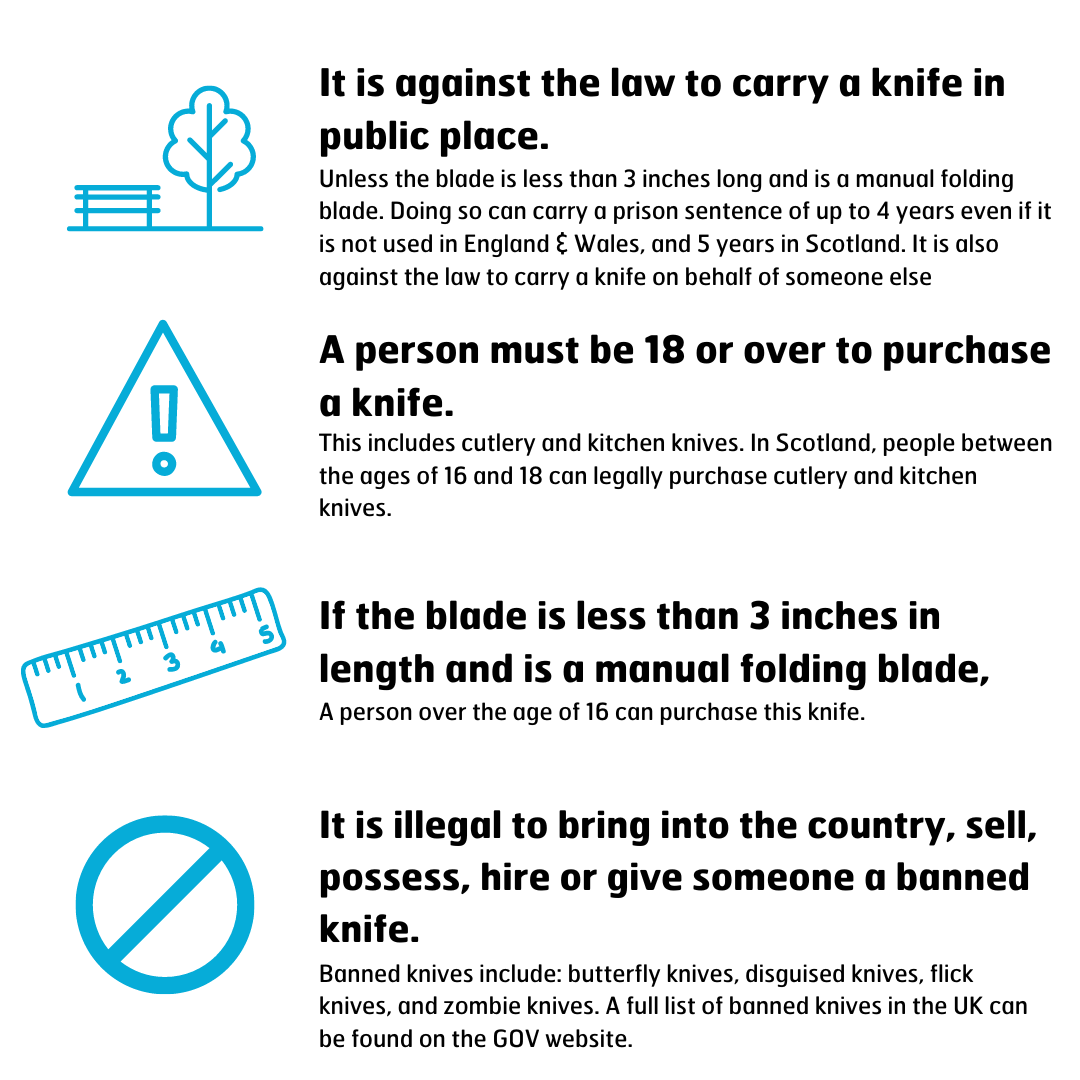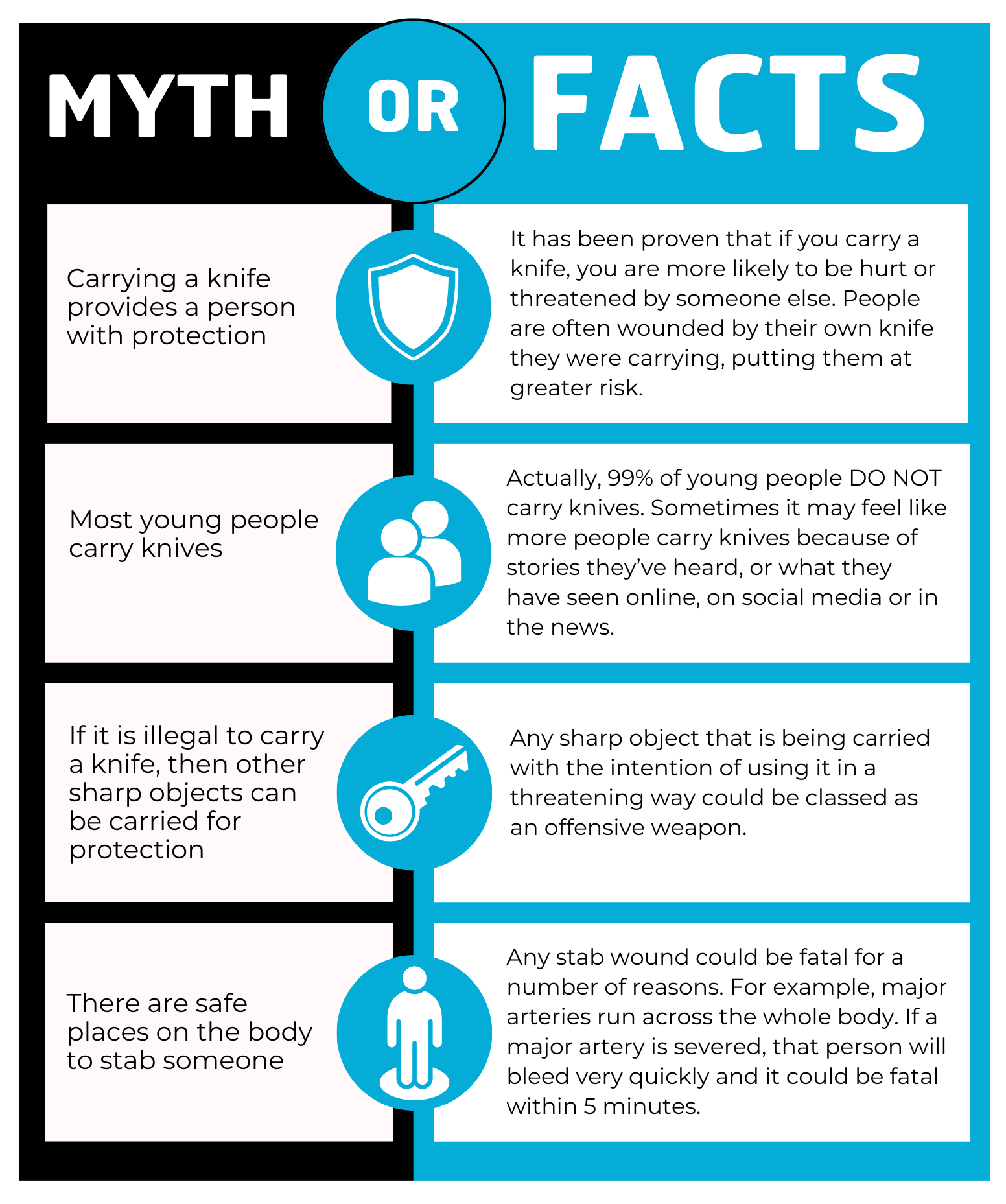What is knife crime?
Knife crime is any crime involving a knife or sharp object. This includes: carrying a knife, owning a banned knife, trying to buy a knife if you are under 18, and/or threatening, injuring or fatally wounding someone with a knife.
An offensive weapon is defined as any item that has been made or adapted for the intention to cause hurt or harm to another person, under the Offences Weapon Act 2019. It is also important to note that pepper spray is illegal to possess in the UK, and is classed as a firearm under Section 5 (1)b of the Firearms Act 1968.
Self-defence or self-protection are not valid reasons for carrying a knife or offensive weapon, and this choice could have serious consequences for that person, including serious or fatal injury to themselves or others, and a criminal record.
Listed below are the knife crime laws for the UK. Please note there are some variations in the law between England, Wales & Scotland.


Dear Merseyside
As part of ongoing work to tackle serious and organised crime in Merseyside, police and partners held an event this week for young people.
The ‘Dear Merseyside’ event took place on Wednesday, December 4 at the Odeon Cinema in Liverpool and 120 schoolchildren attended to hear about the work of EVOLVE which is helping to shut down criminal gangs and strengthen areas that have been worst affected by their activity, which is where the children who attended live and go to school.
Since the launch of the EVOLVE projects there has been a significant drop in crime in all the areas, a total of 2939 arrests made and lengthy custodial sentences handed to offenders across Liverpool, Knowsley, Wirral and Netherton. EVOLVE Everton will be launching in the New Year.
EVOLVE is Merseyside’s response to the Home Office’s Clear, Hold, Build strategy which is a multi partnership approach to improve communities identified as being worst affected by serious and organised crime.
You can read the full story of the day and listen to Joseph Roberts a local poet recite a thought provoking message of hope for young people below, thanks to our staff who took part in the video.
Below are some key facts around knife crime to help bust the myths:

Police have the power to stop and search any person if they have 'reasonable grounds' to suspect that person may be carrying something that is against the law or could cause harm to others. This could include: illegal drugs, a knife or weapon, stolen items or an item that could be used to commit a crime.
Examples of 'reasonable grounds' could include:
- a member of the public has reported that someone is carrying something they shouldn't be.
- somebody matches the description of who they are looking for.
Joint Enterprise is a section of the law which allows two or more people to be convicted of the same crime, potentially receiving the same sentence, even if they had differing levels of involvement.
The Joint Enterprise law is for circumstances where there is evidence to prove a group of people were involved in a crime, but where it is difficult to determine who is the main perpetrator. For example, if a murder has taken place and there is evidence that 5 people were involved, but it is difficult to determine which of those 5 dealt the fatal blow, they could all be convicted of murder under Joint Enterprise.
As Fearless is 100% anonymous, we are unable to take reports from victims of crime.
If you have been a victim of knife crime, it’s really important that you talk to a parent/guardian, an adult you trust or report it to the police.
You can also get more information, support and advice from the organisations listed on our youth support services page.